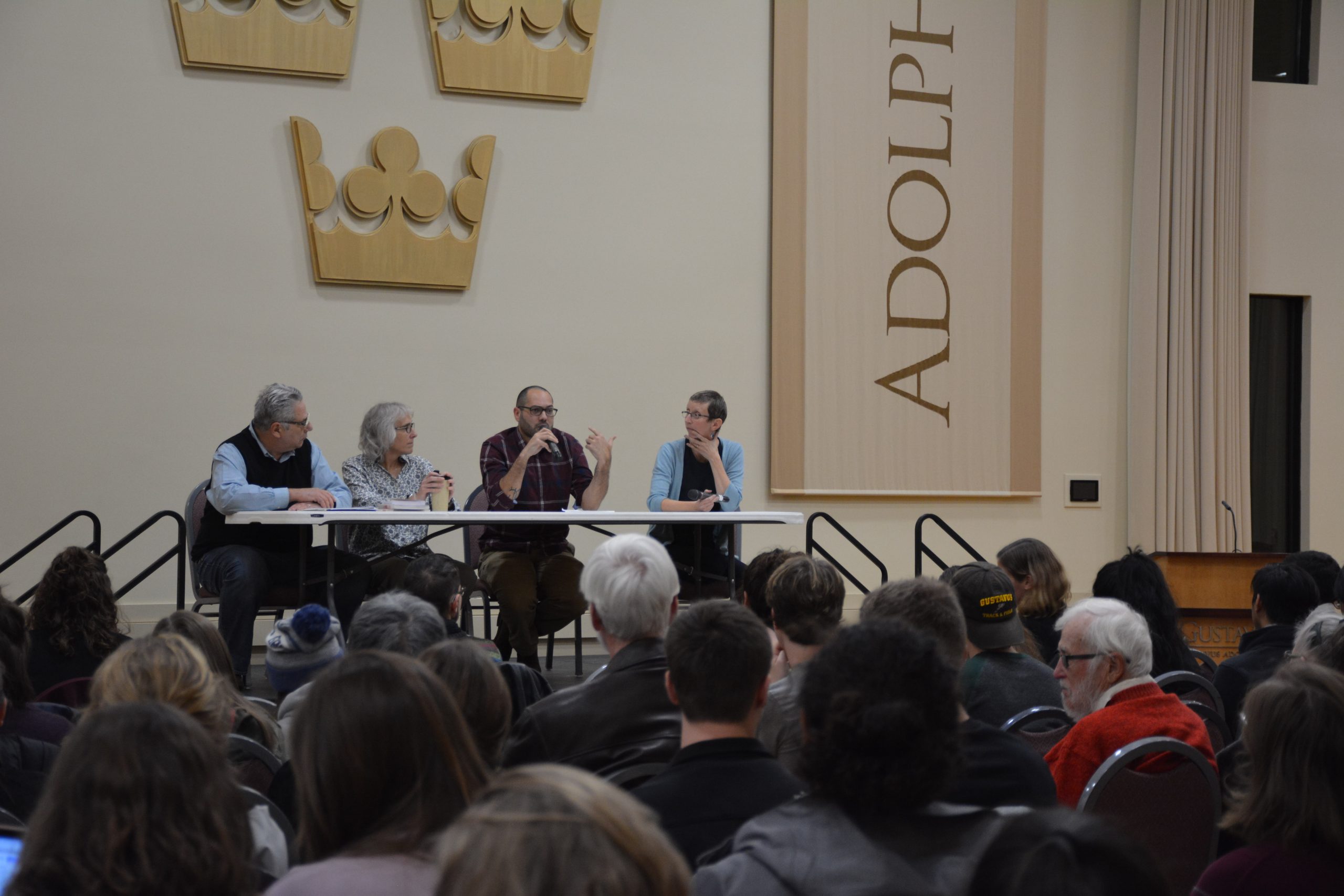On October 29, a presentation and panel was held surrounding the 50th anniversary on the year of 1968.
This year brought a burst of protests and forced many to take a look at the social unrest in areas such as race, gender and economic equality and other problems that the country faced.
“Teach In: 1968 A Legacy of Protest” is an event that looks at this eventful year and how those 365 days can relate to today and issues we are currently facing in the world.
This event was a collaborative effort organized by professors in many different departments.
Sean Easton (Classics and Peace, Justice and Conflict Studies), Maddalena Marinari (History and Peace, Justice and Conflict Studies), Carlos Mejia Suarez (MLLC and LALACS), Dario Sanchez-Gonzalez (MLLC and LALACs), Joaquin Villanueva (Geography and Peace, Justice, and Conflict Studies), and Sharon Marquart (MLLC and GWSS) have all participated in the organization and execution of this event.
“Our goal is to create informed dialogue around issues that are difficult to discuss and that need all the more to be discussed because of that difficulty. We hope that this will be the start of a continuing conversation about issues of justice in the present that are so important to the Gustavus community,” Marquart said.
The idea for this event was brought about by the recognition of the parallels between 1968 and 2018.
“We then talked about different ways we thought of incorporating this into our current courses in order to reflect on the challenges we are facing today, and wanted to organize an event that reflected the diverse perspectives that there are on all of these issues. We then reached out to people on campus to see who might be interested in similar questions, and were surprised and delighted by the response,” Marquart said.
“Health and Exercise Science and Geology in particular are departments none of the initial participants had thought of being interested in the issues we were exploring. And Philosophy and Scandinavian Studies both supported this event by creating bulletin boards and engaging in departmental discussions about what roles protest played in their disciplines,” Marquart said.
Panel participants (Professor Greg Kaster, Professor Laura Triplett, Professor Joaquin Villanueva and Professor Bonnie Reimann) participated on a primarily voluntary basis, being interested in this particular topic of discussion.
Professor Kaster was approached early in the process due to his excitement and interest in the 1960s.
This event gives confidence to students about their activism and the ability they have to create change, similar to the protesting that occured in 1968.
“Our goals at the event tonight will be to reflect on what protest can do, when it might be necessary, and why we should pay attention it. But we will also reflect on what the limits of protest might be and what lessons we can learn from its successes and failures,” Marquart said.
“In reflecting on these ideas that the year 1968 represents, we are creating a space for students to think about their own political agency and their own abilities to create meaningful change. Students have a history of creating global change, and 1968 is a moment that allows us to think through this,” Marquart said.
Professor Reimann share a similar sentiment when it came to the importance of the event to giving students the urge to use their voices for change.
“I hope that it prompts students to reflect on social activism and how they use their voices and agency regarding sport and protest,” Reimann said.
Professor Kaster echoed these thoughts and added the relevance of 1968 to 2018.
“So many of the issues and controversies that roiled the United States and the world in that year are of direct relevance to our community today,” Kaster said.
He was also eager about the student participation within the event and the faculty that put the event together.
“I am especially looking forward to questions from students this evening about 1968 and to discussing with them and my co-panelists not only what happened in 1968 and why, but also how that history affects our present and what we can learn from it,” Kaster said.
This panel allowed students to explore the activism and aim for social change that the year 1968 invited.
It gave examples of the parallels between our times and the past and began a dynamic discussion about the importance of standing up for change.
